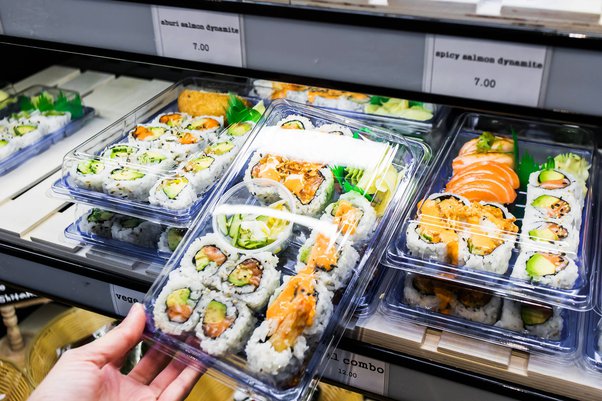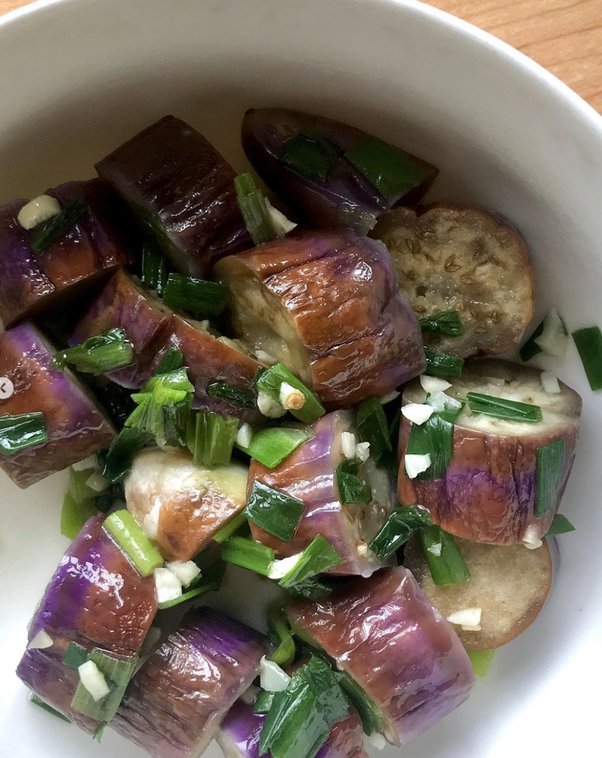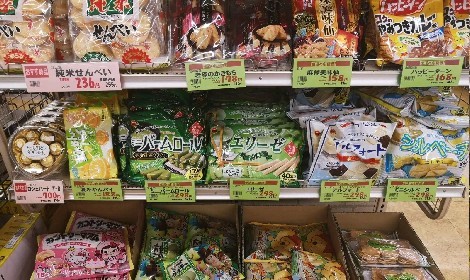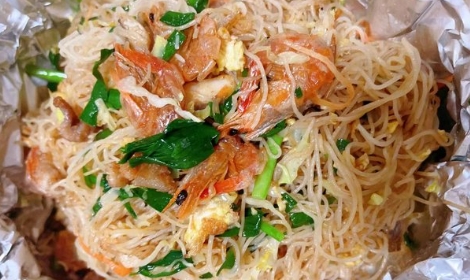印度网友:为什么日本料理不如中国菜受欢迎?
正文翻译
中国菜有着悠久的历史,并受到许多不同地区和文化的影响,这导致了多样化的菜肴和口味。通过中国文化的传播和对世界其他地区的大量移民,中国菜也变得更加流行。
评论翻译
Dante Wong
Here at my office in Dublin, both Japanese and Chinese food are pretty popular.
在我位于都柏林的办公室,日本和中国的食物都相当受欢迎。
However, Japanese food suffers the exact same problem as Chinese food here - most people already have a predefined image in their mind what “Japanese food” and “Chinese food” look like.
然而,日本食物在这里遇到了与中国食物相同的问题 - 大多数人对“日本食物”和“中国食物”有一个预先的形象。
Clue: It’s pretty different compared to the image in my mind.
提示:与我心中所想的相比,它相当不同。
(I don’t own all the images below)
(以下图片非本人所有)
When I tell my colleagues that I am going to prepare a Japanese meal for myself…
当我告诉同事我要为自己准备一顿日本餐时...
What they think I’m preparing:
他们认为我在准备什么:

What I’m actually preparing:
我实际在准备什么:


When I tell my colleagues that I am going to prepare a Chinese a meal for myself…
当我告诉同事我要为自己准备一顿中国餐时...
What they think I’m preparing:
他们认为我在准备什么:

What I’m actually preparing:
我实际在准备什么:


Vivian Chen
I guess it depends on what you mean by “popular”. ♀️
我猜这取决于你所说的“受欢迎”。♀️
The popularity of Chinese cuisine is because there are far more Chinese immigrants around the world, and these Chinese immigrants would adapt their dishes to fit the local palates - which made them more popular with the native populations. While I do agree that Japanese food is not as frequently consumed as Chinese; in terms of “prestige”, Japanese food is probably ranked above all other cuisines except for French cuisine (at least in the West, I know a lot of other people wouldn’t even care).
中国菜的受欢迎程度是因为世界各地有更多的中国移民,这些中国移民会调整他们的菜肴以适应当地的口味 - 这使得他们在当地更受欢迎。虽然我同意日本食物并没有像中国食物那样经常被消费;但在“声望”方面,日本食物可能排在除法国菜外的所有其他菜系之上(至少在西方是这样,我知道很多人不在乎)。
As for the US, there were actually MORE Japanese immigrants than Chinese immigrants around the 1900s-1910s. It’s just that the Chinese immigrants arrived in the US earlier and had already established a localized cuisine to make a living. Also none of the other answers here bring up that many Japanese Americans worked in the American Chinese restaurant business in the US up until around the 1980s when Japanese food became more “acceptable” outside of the Japanese American community.
至于美国,在1900年代至1910年代,实际上日本移民比中国移民更多。只是中国移民早于日本移民抵达美国,为了谋生他们已经建立了本地化的烹饪方式。此外,在这里没有人提到许多日裔美国人直到大约1980年代在美国的中餐业工作,当时日本食物在日裔美国社区之外更容易让人接受。
As Japanese cuisine was never altered much to fit the local palates, it retained more similarity to what was being consumed in Japan. Though there was still a lot of exotic gimmicky stuff to appeal to white customers at the beginning, like teppanyaki (“CATCH THE FUCKING EGG!”) and hibachi. Japan’s growing economic power resulted in the perception that Japanese cuisine was “high class” in the US.
由于日本料理从未被过多改变以适应当地口味,它保持了与在日本消费的食物更相似的特点。尽管一开始还有很多奇异的花哨的东西来吸引白人顾客,比如铁板烧(“抓住那个该死的鸡蛋!”)和火钵。日本不断增长的经济实力导致了人们认为在美国,日本料理是“高档”的看法。
Japanese cuisine is not as widely consumed among the common people as Chinese cuisine but it enjoys a much higher level of prestige among culinary snobs in some “hierarchy of taste”. I find this to be total bullshit since cuisines that are considered “working class” in the US like Chinese, Indian, and Mexican all have much more diversity, complexity, and history than Japanese cuisine. I’m also shocked by how people think it’s fine to pay $100 for a Japanese meal but refuse to do so for any Southeast Asian cuisine because they think SEA cuisines should be “cheap and cheerful” even though Southeast Asian dishes are harder to make.
日本料理在普通人中并没有像中国料理那样被广泛消费,但在一些“口味等级”的烹饪狂热者中享有更高的声望。我认为这完全是胡说,因为在美国被认为是“工人阶级”菜系的中国菜、印度菜和墨西哥菜都比日本菜更具多样性、复杂性和历史。我还对人们认为支付100美元用于日本餐而拒绝为任何东南亚菜系支付相同金额感到震惊,因为他们认为东南亚菜应该“便宜而开心”,尽管东南亚菜更难做。
I also previously wrote about how so many Korean American chefs would only cook French and Japanese cuisine for most of their careers, because they actually felt ashamed to cook Korean cuisine. Racism is not something always overt and violent. A lot of the times its subtle and slowly poisons your mind without you even realizing it.
我之前还写过许多韩裔美国厨师在他们职业生涯的大部分时间里只会做法国和日本菜,因为他们实际上为做韩国菜感到羞愧。种族主义不总是明显和暴力的。很多时候,它是微妙的,慢慢地毒害你的思想,甚至让你自己都没有意识到。
(Do French and Japanese actually deserve to be ranked so highly? Be serious now. They’re probably the most overrated af cuisines. People praise Japanese cuisine for being “subtle” but if the same stuff was coming from Britain, you’d probs all just be calling it “bland”. )
(法国和日本真的应该被如此高度评价吗?现在是认真对待的时候了。它们可能是最被高估的菜系。人们赞扬日本料理“细致”,但如果同样的东西来自英国,你们可能都只会称其为“乏味”。)
Nuwa SK
I can answer just for my home country; Sri Lanka.
我只能回答关于我的祖国斯里兰卡的问题。
Chinese food in Sri Lanka is very popular.
在斯里兰卡,中国菜非常受欢迎。
But like in any country that is not China, Chinese cuisine in Sri Lanka has been modified to suit the local taste buds.
但与任何不是中国的国家一样,斯里兰卡的中国菜已经经过改良以适应当地的口味。
So why is Chinese food popular in Sri Lanka?
那么为什么在斯里兰卡,中国菜如此受欢迎呢?
Because we had it for a very very long time.
因为他们已经存在了很长时间。
Sri Lanka had Chinese migrants who settled down in Sri Lanka in the 17th, 18th and 19th centuries.
在17世纪、18世纪和19世纪,斯里兰卡有中国移民在那里定居。
With them they brought their culture, food and many other things. While the migrants adopted food, language, culture and traditions of the locals, the locals too adopted a few things the migrants brought with them.
他们带来了他们的文化、食物和许多其他东西。虽然移民们接纳了当地人的食物、语言、文化和传统,但当地人也接纳了移民带来的一些东西。
Because of this, compared to other cuisines, a few Chinese dishes like fried rice and stir fry's are affordable and available anywhere you go in Sri Lanka.
因此,与其他菜系相比,在斯里兰卡,一些中国菜如炒饭和炒菜是负担得起的,并且随处可见。
Japanese food on the other hand is the least popular BUT it’s gaining popularity in the recent years.
另一方面,日本食物是最不受欢迎的,但在近年来却逐渐受到欢迎。
Still it won’t be as popular as Chinese food because Japanese food is very expensive and there is a lack of knowledge about what Japanese food is.
尽管它不会像中国菜那样受欢迎,因为日本食物非常昂贵,而且对日本食物缺乏了解。
A lot of people in Sri Lanka thinks Japanese food = raw food so they avoid even trying it.
斯里兰卡的许多人认为日本食物等于生食,因此他们甚至都不敢尝试。
But in the past couple of years, younger generations have become extremely health conscious and they’re looking for healthy AND delicious food. Japanese food checks both of those boxes. So as a result, in the past couple of years there have been a growing number of successful Japanese restaurants in Sri Lanka.
但在过去的几年里,年轻一代变得极其注重健康,他们寻找健康又美味的食物。日本食物符合这两个条件。因此,过去的几年里,在斯里兰卡已经涌现出越来越多成功的日本餐厅。
Kerry
It's important to note that popularity is a subjective and complex concept that can be influenced by many factors, such as cultural familiarity, marketing, and accessibility. Therefore, it's difficult to make a general statement about why Japanese food may not be as popular as Chinese food in some places.
我们要重点关注的是,受欢迎程度是一个主观且复杂的概念,会受到许多因素的影响,例如文化熟悉度、营销和可访问性。因此,在一些地方很难对为什么日本食物可能不像中国食物那样受欢迎做出一般性的陈述。
However, there are a few possible reasons why Chinese food may be more well-known and widely available in certain regions:
然而,有一些可能的原因解释为什么中国食物在某些地区更为知名且更为普遍:
Historical and cultural factors: Chinese cuisine has a long history and has been influenced by many different regions and cultures, which has led to a diverse range of dishes and flavors. Chinese cuisine has also been popularized through the spread of Chinese culture and migration to other parts of the world.
历史和文化因素:中国菜有着悠久的历史,并受到许多不同地区和文化的影响,这导致了多样化的菜肴和口味。通过中国文化的传播和对世界其他地区的大量移民,中国菜也变得更加流行。
Variety and accessibility: Chinese cuisine includes a wide variety of dishes, ranging from savory to sweet, and can be easily customized to suit different tastes and preferences. Chinese restaurants and fast food chains are also widely available in many parts of the world, making it easy for people to try and enjoy Chinese food.
多样性和易获得性:中国菜包括各种各样的菜肴,从咸到甜,可以轻松定制以适应不同的口味和偏好。中国餐馆和快餐连锁店在世界许多地方也广泛存在,使人们能够轻松尝试和享受中国菜。
Perception of healthiness: In some places, Chinese food is perceived as healthier than other types of cuisine, as it often includes vegetables, grains, and lean protein sources. This perception may make Chinese food more appealing to health-conscious consumers.
健康感知:在一些地方,中国菜被认为比其他类型的菜系更健康,因为它通常包括蔬菜、谷物和瘦蛋白来源。这种认知可能使中国菜对注重健康的消费者更具吸引力。
Marketing and advertising: Chinese food has been heavily marketed and advertised in many parts of the world, which has helped to increase its popularity and familiarity among consumers.
营销和广告:中国菜在世界许多地方都进行了大力的营销和广告,这有助于提高其在消费者中的知名度和受欢迎程度。
It's important to note that Japanese cuisine has also gained popularity in recent years, particularly in Western countries, due to its unique flavors, presentation, and health benefits. However, the popularity of different types of cuisine can vary widely depending on many factors, and it's important to appreciate the diversity and richness of different culinary traditions.
需要注意的是,近年来日本料理在特别是西方国家也变得越来越受欢迎,这归功于其独特的口味、呈现方式和健康因素。然而,不同类型的菜系受欢迎程度可能因许多因素而有很大差异,因此重要的是要欣赏不同烹饪传统的多样性和丰富性。
Here at my office in Dublin, both Japanese and Chinese food are pretty popular.
在我位于都柏林的办公室,日本和中国的食物都相当受欢迎。
However, Japanese food suffers the exact same problem as Chinese food here - most people already have a predefined image in their mind what “Japanese food” and “Chinese food” look like.
然而,日本食物在这里遇到了与中国食物相同的问题 - 大多数人对“日本食物”和“中国食物”有一个预先的形象。
Clue: It’s pretty different compared to the image in my mind.
提示:与我心中所想的相比,它相当不同。
(I don’t own all the images below)
(以下图片非本人所有)
When I tell my colleagues that I am going to prepare a Japanese meal for myself…
当我告诉同事我要为自己准备一顿日本餐时...
What they think I’m preparing:
他们认为我在准备什么:

What I’m actually preparing:
我实际在准备什么:


When I tell my colleagues that I am going to prepare a Chinese a meal for myself…
当我告诉同事我要为自己准备一顿中国餐时...
What they think I’m preparing:
他们认为我在准备什么:

What I’m actually preparing:
我实际在准备什么:


Vivian Chen
I guess it depends on what you mean by “popular”. ♀️
我猜这取决于你所说的“受欢迎”。♀️
The popularity of Chinese cuisine is because there are far more Chinese immigrants around the world, and these Chinese immigrants would adapt their dishes to fit the local palates - which made them more popular with the native populations. While I do agree that Japanese food is not as frequently consumed as Chinese; in terms of “prestige”, Japanese food is probably ranked above all other cuisines except for French cuisine (at least in the West, I know a lot of other people wouldn’t even care).
中国菜的受欢迎程度是因为世界各地有更多的中国移民,这些中国移民会调整他们的菜肴以适应当地的口味 - 这使得他们在当地更受欢迎。虽然我同意日本食物并没有像中国食物那样经常被消费;但在“声望”方面,日本食物可能排在除法国菜外的所有其他菜系之上(至少在西方是这样,我知道很多人不在乎)。
As for the US, there were actually MORE Japanese immigrants than Chinese immigrants around the 1900s-1910s. It’s just that the Chinese immigrants arrived in the US earlier and had already established a localized cuisine to make a living. Also none of the other answers here bring up that many Japanese Americans worked in the American Chinese restaurant business in the US up until around the 1980s when Japanese food became more “acceptable” outside of the Japanese American community.
至于美国,在1900年代至1910年代,实际上日本移民比中国移民更多。只是中国移民早于日本移民抵达美国,为了谋生他们已经建立了本地化的烹饪方式。此外,在这里没有人提到许多日裔美国人直到大约1980年代在美国的中餐业工作,当时日本食物在日裔美国社区之外更容易让人接受。
As Japanese cuisine was never altered much to fit the local palates, it retained more similarity to what was being consumed in Japan. Though there was still a lot of exotic gimmicky stuff to appeal to white customers at the beginning, like teppanyaki (“CATCH THE FUCKING EGG!”) and hibachi. Japan’s growing economic power resulted in the perception that Japanese cuisine was “high class” in the US.
由于日本料理从未被过多改变以适应当地口味,它保持了与在日本消费的食物更相似的特点。尽管一开始还有很多奇异的花哨的东西来吸引白人顾客,比如铁板烧(“抓住那个该死的鸡蛋!”)和火钵。日本不断增长的经济实力导致了人们认为在美国,日本料理是“高档”的看法。
Japanese cuisine is not as widely consumed among the common people as Chinese cuisine but it enjoys a much higher level of prestige among culinary snobs in some “hierarchy of taste”. I find this to be total bullshit since cuisines that are considered “working class” in the US like Chinese, Indian, and Mexican all have much more diversity, complexity, and history than Japanese cuisine. I’m also shocked by how people think it’s fine to pay $100 for a Japanese meal but refuse to do so for any Southeast Asian cuisine because they think SEA cuisines should be “cheap and cheerful” even though Southeast Asian dishes are harder to make.
日本料理在普通人中并没有像中国料理那样被广泛消费,但在一些“口味等级”的烹饪狂热者中享有更高的声望。我认为这完全是胡说,因为在美国被认为是“工人阶级”菜系的中国菜、印度菜和墨西哥菜都比日本菜更具多样性、复杂性和历史。我还对人们认为支付100美元用于日本餐而拒绝为任何东南亚菜系支付相同金额感到震惊,因为他们认为东南亚菜应该“便宜而开心”,尽管东南亚菜更难做。
I also previously wrote about how so many Korean American chefs would only cook French and Japanese cuisine for most of their careers, because they actually felt ashamed to cook Korean cuisine. Racism is not something always overt and violent. A lot of the times its subtle and slowly poisons your mind without you even realizing it.
我之前还写过许多韩裔美国厨师在他们职业生涯的大部分时间里只会做法国和日本菜,因为他们实际上为做韩国菜感到羞愧。种族主义不总是明显和暴力的。很多时候,它是微妙的,慢慢地毒害你的思想,甚至让你自己都没有意识到。
(Do French and Japanese actually deserve to be ranked so highly? Be serious now. They’re probably the most overrated af cuisines. People praise Japanese cuisine for being “subtle” but if the same stuff was coming from Britain, you’d probs all just be calling it “bland”. )
(法国和日本真的应该被如此高度评价吗?现在是认真对待的时候了。它们可能是最被高估的菜系。人们赞扬日本料理“细致”,但如果同样的东西来自英国,你们可能都只会称其为“乏味”。)
Nuwa SK
I can answer just for my home country; Sri Lanka.
我只能回答关于我的祖国斯里兰卡的问题。
Chinese food in Sri Lanka is very popular.
在斯里兰卡,中国菜非常受欢迎。
But like in any country that is not China, Chinese cuisine in Sri Lanka has been modified to suit the local taste buds.
但与任何不是中国的国家一样,斯里兰卡的中国菜已经经过改良以适应当地的口味。
So why is Chinese food popular in Sri Lanka?
那么为什么在斯里兰卡,中国菜如此受欢迎呢?
Because we had it for a very very long time.
因为他们已经存在了很长时间。
Sri Lanka had Chinese migrants who settled down in Sri Lanka in the 17th, 18th and 19th centuries.
在17世纪、18世纪和19世纪,斯里兰卡有中国移民在那里定居。
With them they brought their culture, food and many other things. While the migrants adopted food, language, culture and traditions of the locals, the locals too adopted a few things the migrants brought with them.
他们带来了他们的文化、食物和许多其他东西。虽然移民们接纳了当地人的食物、语言、文化和传统,但当地人也接纳了移民带来的一些东西。
Because of this, compared to other cuisines, a few Chinese dishes like fried rice and stir fry's are affordable and available anywhere you go in Sri Lanka.
因此,与其他菜系相比,在斯里兰卡,一些中国菜如炒饭和炒菜是负担得起的,并且随处可见。
Japanese food on the other hand is the least popular BUT it’s gaining popularity in the recent years.
另一方面,日本食物是最不受欢迎的,但在近年来却逐渐受到欢迎。
Still it won’t be as popular as Chinese food because Japanese food is very expensive and there is a lack of knowledge about what Japanese food is.
尽管它不会像中国菜那样受欢迎,因为日本食物非常昂贵,而且对日本食物缺乏了解。
A lot of people in Sri Lanka thinks Japanese food = raw food so they avoid even trying it.
斯里兰卡的许多人认为日本食物等于生食,因此他们甚至都不敢尝试。
But in the past couple of years, younger generations have become extremely health conscious and they’re looking for healthy AND delicious food. Japanese food checks both of those boxes. So as a result, in the past couple of years there have been a growing number of successful Japanese restaurants in Sri Lanka.
但在过去的几年里,年轻一代变得极其注重健康,他们寻找健康又美味的食物。日本食物符合这两个条件。因此,过去的几年里,在斯里兰卡已经涌现出越来越多成功的日本餐厅。
Kerry
It's important to note that popularity is a subjective and complex concept that can be influenced by many factors, such as cultural familiarity, marketing, and accessibility. Therefore, it's difficult to make a general statement about why Japanese food may not be as popular as Chinese food in some places.
我们要重点关注的是,受欢迎程度是一个主观且复杂的概念,会受到许多因素的影响,例如文化熟悉度、营销和可访问性。因此,在一些地方很难对为什么日本食物可能不像中国食物那样受欢迎做出一般性的陈述。
However, there are a few possible reasons why Chinese food may be more well-known and widely available in certain regions:
然而,有一些可能的原因解释为什么中国食物在某些地区更为知名且更为普遍:
Historical and cultural factors: Chinese cuisine has a long history and has been influenced by many different regions and cultures, which has led to a diverse range of dishes and flavors. Chinese cuisine has also been popularized through the spread of Chinese culture and migration to other parts of the world.
历史和文化因素:中国菜有着悠久的历史,并受到许多不同地区和文化的影响,这导致了多样化的菜肴和口味。通过中国文化的传播和对世界其他地区的大量移民,中国菜也变得更加流行。
Variety and accessibility: Chinese cuisine includes a wide variety of dishes, ranging from savory to sweet, and can be easily customized to suit different tastes and preferences. Chinese restaurants and fast food chains are also widely available in many parts of the world, making it easy for people to try and enjoy Chinese food.
多样性和易获得性:中国菜包括各种各样的菜肴,从咸到甜,可以轻松定制以适应不同的口味和偏好。中国餐馆和快餐连锁店在世界许多地方也广泛存在,使人们能够轻松尝试和享受中国菜。
Perception of healthiness: In some places, Chinese food is perceived as healthier than other types of cuisine, as it often includes vegetables, grains, and lean protein sources. This perception may make Chinese food more appealing to health-conscious consumers.
健康感知:在一些地方,中国菜被认为比其他类型的菜系更健康,因为它通常包括蔬菜、谷物和瘦蛋白来源。这种认知可能使中国菜对注重健康的消费者更具吸引力。
Marketing and advertising: Chinese food has been heavily marketed and advertised in many parts of the world, which has helped to increase its popularity and familiarity among consumers.
营销和广告:中国菜在世界许多地方都进行了大力的营销和广告,这有助于提高其在消费者中的知名度和受欢迎程度。
It's important to note that Japanese cuisine has also gained popularity in recent years, particularly in Western countries, due to its unique flavors, presentation, and health benefits. However, the popularity of different types of cuisine can vary widely depending on many factors, and it's important to appreciate the diversity and richness of different culinary traditions.
需要注意的是,近年来日本料理在特别是西方国家也变得越来越受欢迎,这归功于其独特的口味、呈现方式和健康因素。然而,不同类型的菜系受欢迎程度可能因许多因素而有很大差异,因此重要的是要欣赏不同烹饪传统的多样性和丰富性。










